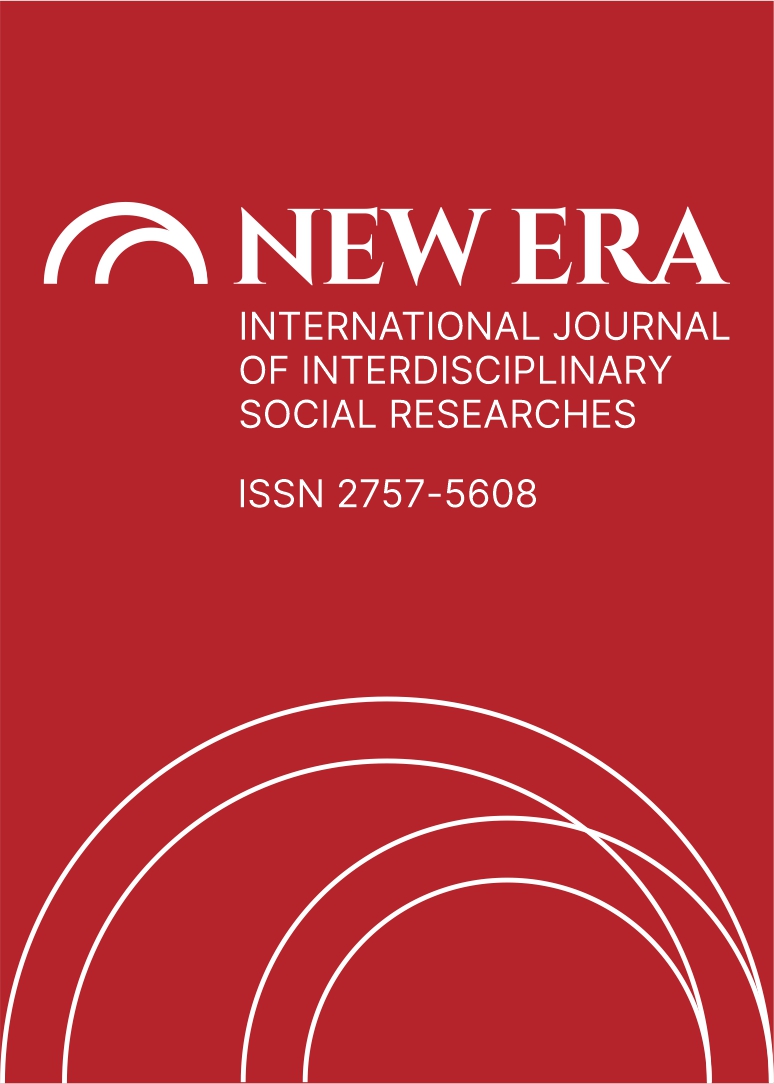LIBERAL DISCOURSE AND POLICIES IN AK PARTY GOVERNMENT PROGRAMS: 2002-2015 PERIOD
DOI:
https://doi.org/10.5281/zenodo.7441813Abstract
Turkey was governed by a parliamentary government system from the enactment of the 1876 Constitution until the elections of 24 June 2018 (except for the 1921 Constitution, which corresponds to a very short period). In parliamentary systems of government, the prime minister, who heads the government, is a member of the legislature and is the person charged with forming the government. The Prime Minister usually prepares or has a government program prepared in order to fulfill his mandate to form the government. If this government program can get a vote of confidence from the legislature, the government is formally formed. In this process, which expressed the formula of forming a government in Turkey until recently, the government programs presented by the prime ministers to the legislature are of great importance. Because the government programs submitted to a vote of confidence are a kind of compass of the governments and it is expected that policies will be developed in accordance with the principles and promises set forth in the aforementioned program during the term of office. The four government programs (Abdullah Gül's Government and three different Recep Tayyip Erdoğan Governments) aiming at realizing various reforms, expanding fundamental rights and freedoms, and reaching the criteria of the European Union, especially in the first years of the AK Party, which has been in power in Turkey since November 3, 2002, It draws attention in terms of giving place to discourse and policies. This study aims to reveal the traces of liberalism ideology in the claims, policies and discourses of the first four government programs of the AK Party. The main argument of this study is that the AK Party, which defined itself as a conservative democrat in the aforementioned period and frequently emphasized the conservative democratic identity in government programs, was closer to a liberal democratic identity at that time.
References
Akıncı, Mehmet (2012). Türk Muhafazakârlığı: Çok Partili Siyasal Hayattan 12 Eylül’e, Ötüken Yayınları, İstanbul.
Akalın, Güneri (2010). Cumhuriyet Dönemi Ekonomi-Politik Tarihinin Liberal Yorumu, Orion Yayınları, Ankara.
Akyol, Taha (2003). AKP and Conservative Democracy, Milliyet Newspaper, 14 October 2013.
Berktay, Fatmagül (2014). “Liberalizm: Tek Bir Pozisyona İndirgenmesi Olanaksız Bir İdeoloji”, 19. Yüzyıldan 20. Yüzyıla Modern Siyasal İdeolojiler, 9th edition, Ed. H. Birsen Örs, İstanbul Bilgi Üniversitesi Yayınları, İstanbul.
Çetin, Halis (2007). Çağdaş Siyasal Akımlar, Orion Yayınları, Ankara.
Duman, Mehmet Zeki (2017). Türkiye’de Liberal- Muhafazakâr Siyaset ve Turgut Özal, 2nd edition, Liberte Yayınları, Ankara.
Eccleshall, Robert (2003). “Liberalism”, Political Ideologies: An Introduction, Ed. Eccleshall et al, Routledge, London.
Ertugay, Fatih (2016). “Siyaset”, Siyaset Bilimi, Ed. Halis Çetin, 6th edition, Orion Yayınları, Ankara.
Güler, Zeynep (2014). Muhafazakârlık: Kadim Geleneğin Savunusundan Faydacılığa, 9th edition, Ed. H. Birsen Örs, İstanbul Bilgi Üniversitesi Yayınları, İstanbul.
Heywood, Andrew (2013). Siyaset, Çev. Bekir Berat Özipek et al, 9th edition, Adres Yayınları, Ankara.
Heywood, Andrew (2017). Political Ideologies: An Introduction, 6th edition, Palgrave Macmillan Education, London.
Kurt, Mehmet Emin; Taylan, Ömer and Şen, Mehmet Ali (2018). “Milli Görüş Geleneğindeki Siyasi Partilerin Sağlık Hizmetlerine Bakışı Üzerine Bir Değerlendirme”, University of Dicle Journal of Faculty of Economics and Administrative Sciences, Vol. 8, Issue 15, pp. 68-88.
Layton-Henry, Zig (1982). “Conservatism and Conservative Politics”, Conservative Politics in Western Europe, Ed. Z. Layton-Henry, Palgrave Macmillan, London. https://doi.org/10.1007/978-1-349-16252-9_1 (Accessed: 15.10.2022).
Miller, David, Janet Coleman, William Conolly ve Alan Ryan (1991). The Blackwell Encyclopaedia of Political Thought, Wiley-Blackwell, Oxford.
Nebati, Nureddin (2014). Milli Görüşten Muhafazakâr Demokrasiye, 3rd edition, Alfa Yayınları, İstanbul.
Özipek, Bekir Berat (2004). Muhafazakârlık, Akıl, Toplum, Siyaset, Liberte Yayınları, Ankara.
Party Program of Ak Parti: https://www.akparti.org.tr/parti/parti-programi/ (Accesed: 15.10.2022).
Poyraz, Fahrettin (2019). “Milli Nizam Partisi’nden Ak Parti’ye”, İttihat ve Terakki’den Günümüze Siyasal Partiler, Ed. Turgay Uzun, 3rd edition, Orion Yayınları, Ankara.
TBMM Tutanak Dergisi,18/03/2003:https://www5.tbmm.gov.tr/tutanaklar/TUTANAK/TBMM/d22/c008/tbmm2208 49.pdf (Accesed: 15.10.2022).
TBMM Tutanak Dergisi, 23/11/2002: https://www5.tbmm.gov.tr/tutanaklar/TUTANAK/TBMM/d22/c008/tbmm22001003.pdf (Accesed: 15.10.2022).
TBMM Tutanak Dergisi, 08/07/2011: https://www5.tbmm.gov.tr/tutanaklar/TUTANAK/TBMM/d24/c001/tbmm24001006.pdf (Accesed: 15.10.2022).
Talip Tuğrul (2019). Milli Görüş Hareketi’nin Temel Karakterleri, MGV Yayınları, Ankara.
Taylan, Ömer (2021). “1946 Genel Seçimlerinin Demokrasi Bağlamında Değerlendirilmesi”, Sosyal Bilimler Akademi Dergisi, Cilt 4, Sayı 1, pp. 62-74.
Yayla, Atilla (2003). Siyasi Düşünce Sözlüğü, 4th edition, Adres Yayınları, Ankara.
Yayla, Atilla (2019). Siyaset Bilimi, Adres Yayınları, Ankara.
Yıldırım, Ergün (2011). “2000’li Yıllarda Adalet ve Kalkınma Partisi”, Türkiye’de Siyasi Partiler, Ed. Hatem Ete, Meydan Yayıncılık, İstanbul.
Yılmaz, Aytekin (2016). Çağdaş Siyasal Akımlar, 3rd edition, Vadi Yayınları, İstanbul.
Downloads
Published
How to Cite
Issue
Section
License
Copyright (c) 2022 NEW ERA INTERNATIONAL JOURNAL OF INTERDISCIPLINARY SOCIAL RESEARCHES

This work is licensed under a Creative Commons Attribution-NonCommercial 4.0 International License.


